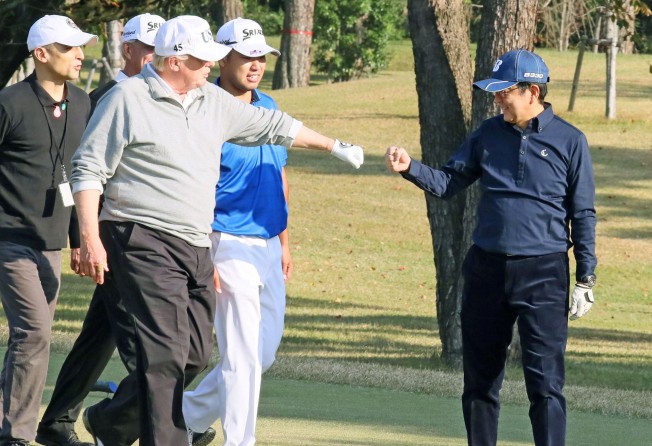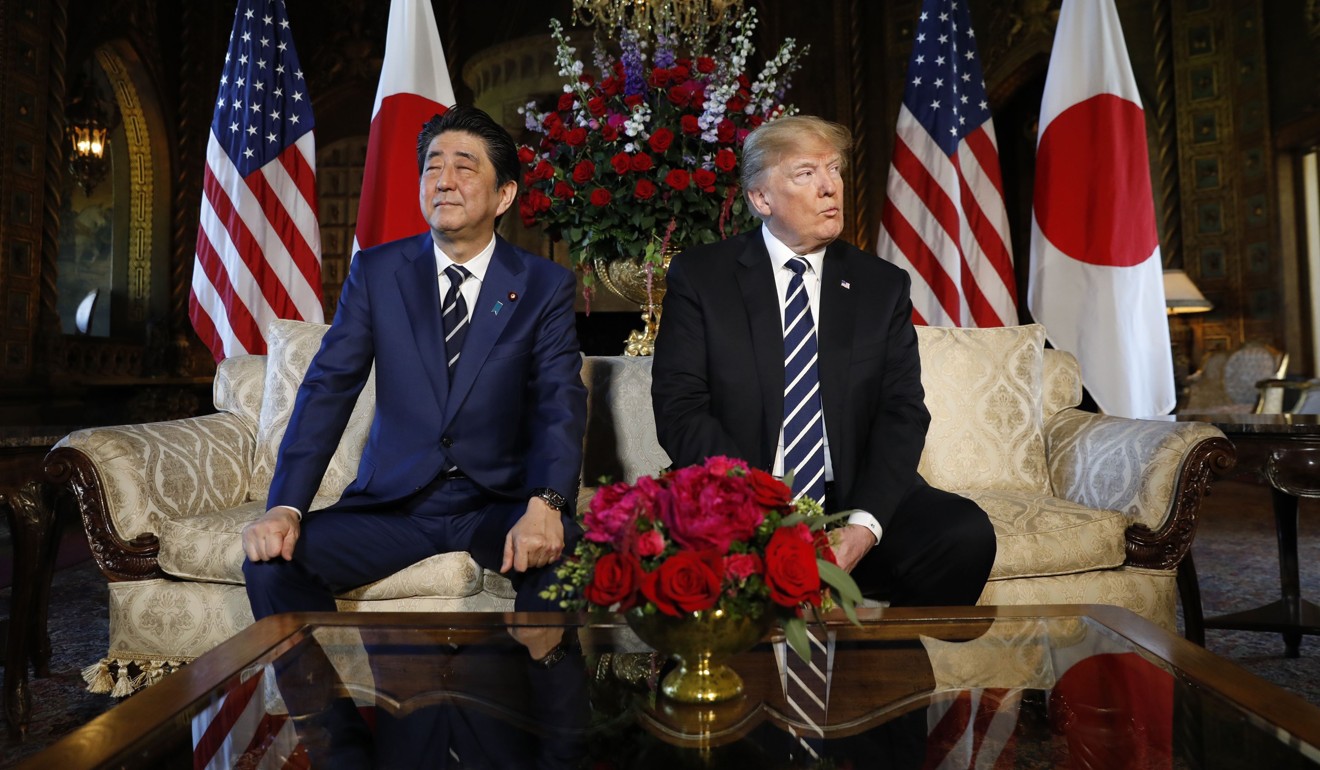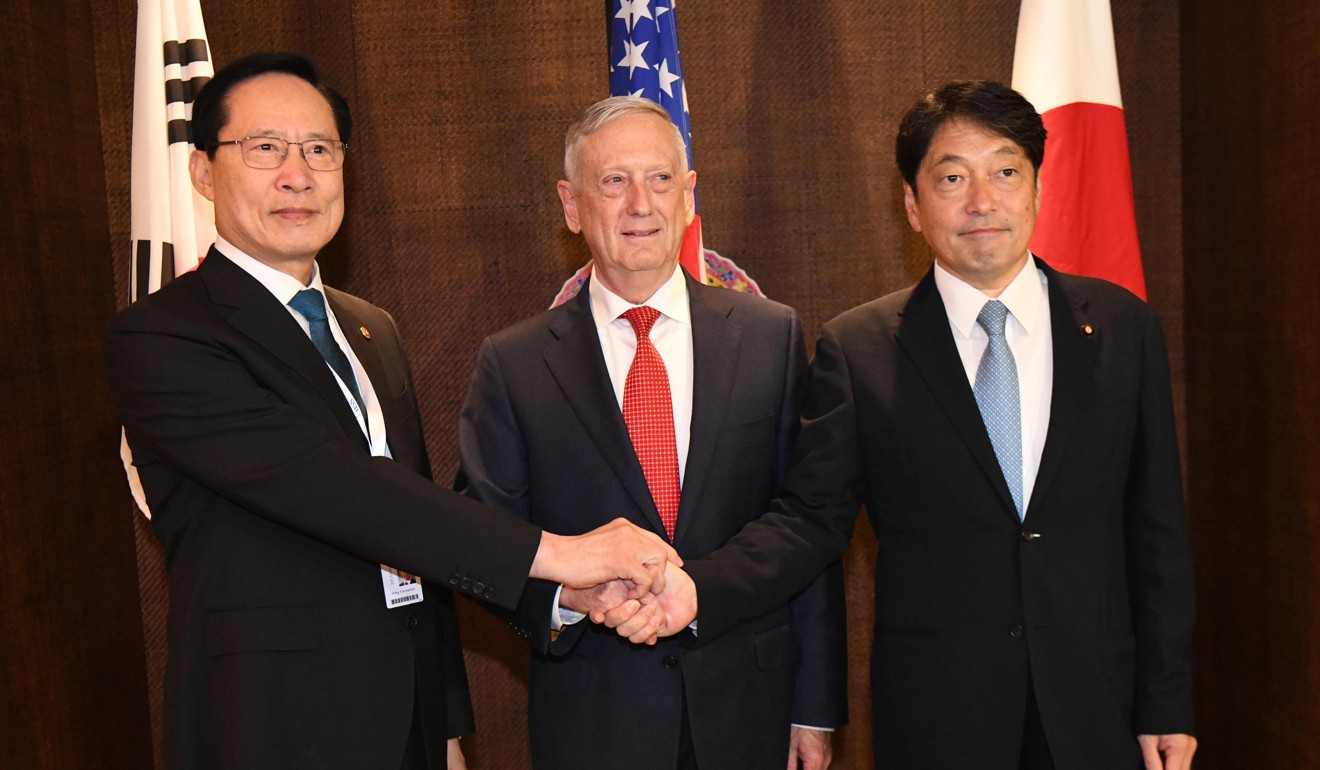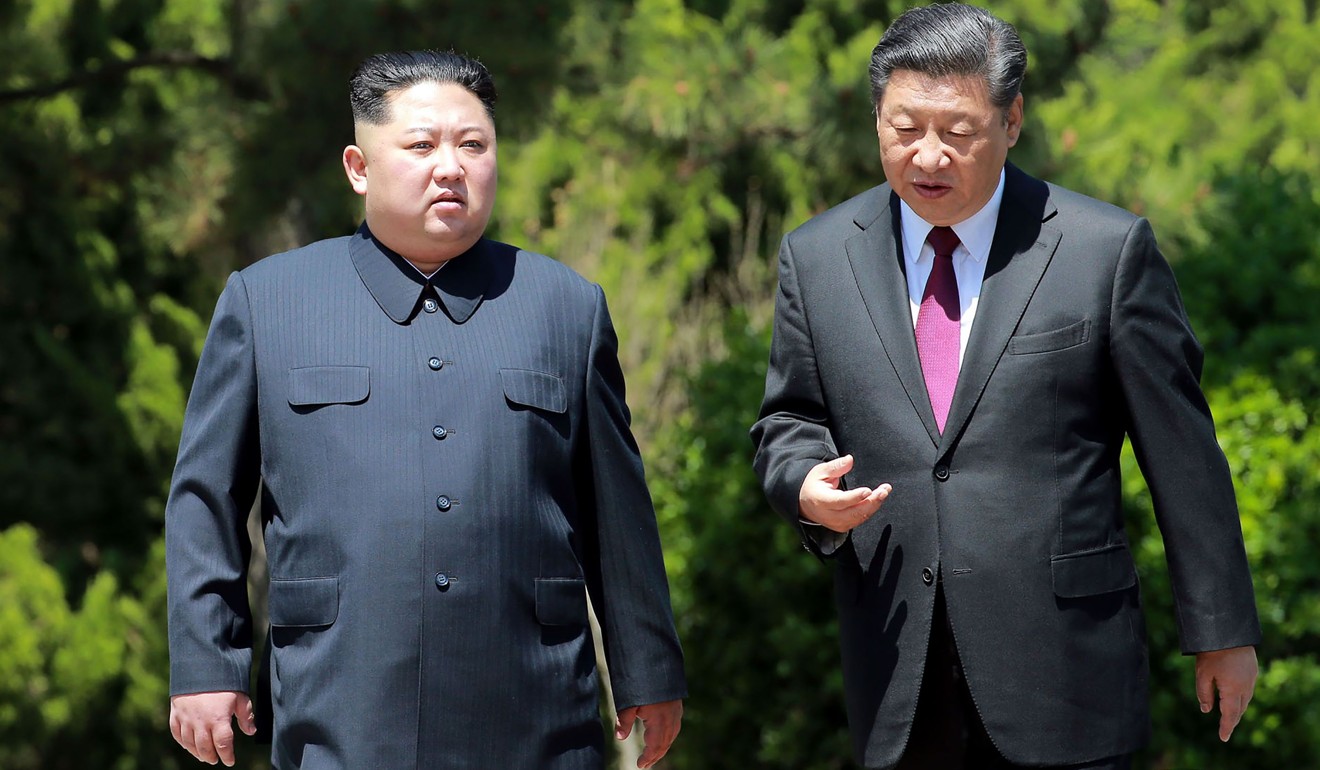Japan fears being sidelined as dealmaker Donald Trump prepares to meet North Korea’s Kim Jong-un
There are concerns in Tokyo that the US leader is prepared to walk away from the Singapore summit with an agreement that ignores Japanese demands

Since the last time US President Donald Trump visited Japan for talks with Prime Minister Shinzo Abe, the once critically important bond between the two countries seems to have weakened. This could best be illustrated by the round of golf the two leaders had during Trump’s trip.
Abe – a keen rather than skilled golfer – sank a shot into a bunker, although he managed to whack his ball out with a problem.
However, as he was trying to get out, he lost his footing and tumbled back into the sand, his indignity caught with the long lenses of television cameras on hovering helicopters.
Trump, oblivious to Abe’s plight, continued down the fairway with only his ball in mind.
Seven months later, the US leader is still forging ahead in his dealings with North Korea and leaving Abe and Japan trailing unheeded in his wake.
And that Trump is paying no attention to Japan’s primary concerns – security and the return of Japanese nationals abducted by North Korea – is causing concern in Tokyo.
Japan is disappointed it has been left out of discussions on issues it believes it has a stake in and, on more than one occasion, has been stunned after only finding out about US policies through Twitter or media reports.

Abe is due to travel to Washington before Trump leaves for his summit in Singapore with Kim Jong-un. He is expected to urge the US president to make sure Pyongyang commits to scrapping missiles capable of hitting Japan, destroying stockpiles of chemical and biological weapons, and provide details about missing Japanese, besides its promise to abolish nuclear weapons and long-range missiles.
Japan’s fear is that Trump will walk away with a looser agreement on nuclear weapons and gloss over the other issues just so he can strike some sort of deal.
Officials have not said it publicly, but the feeling in some quarters is that Trump would rather have an imperfect deal and the chance of a Nobel Peace Prize than have the talks fail.
“It is clear that in the last couple of months, the US has changed its tune significantly,” said Jeff Kingston, director of Asian Studies at Tokyo’s Temple University.
“Abe advocates ‘maximum pressure’ on North Korea and the announcement ... that Trump had agreed to a summit with Kim must have been a particularly bitter pill to swallow.”

On Friday, Trump said he does not want to use the term “maximum pressure” any more because the US and North Korea are now “getting along”.
That led to Japan’s Defence Minister Itsunori Onodera toning down a speech on Saturday at the Shangri-La Dialogue in Singapore and “pressure” being removed from a joint statement on North Korea with his South Korean and US counterparts.
Onodera indicated Japan has made minor adjustments to its policy, telling reporters: “Pressure and dialogue will go together.”
Even after North Korea’s conciliatory gestures and active diplomacy since the beginning of the year, Japan has warned against Pyongyang’s “smile diplomacy”, through which Tokyo says it is aiming to weaken international economic sanctions against it.
Abe said at a joint press conference with Trump on April 18 in Palm Beach, Florida, that they “completely” agreed to keep maximum pressure on Pyongyang, more than one month after the US president decided to hold a summit with Kim.

When Abe visited Trump Tower in New York in November 2016, he explained the necessity of putting pressure on North Korea, as the then president-elect did not have any policy toward Pyongyang’s nuclear threat, a source close to the matter told Kyodo News.
“Abe has been proud of himself, believing he has succeeded in prodding President Trump to maximise pressure on North Korea,” the source said.
But the situation has drastically changed in recent months. With Kim holding talks with President Xi Jinping, South Korean President Moon Jae-in and soon Trump, Abe appears increasingly sidelined.
Additional reporting by Kyodo